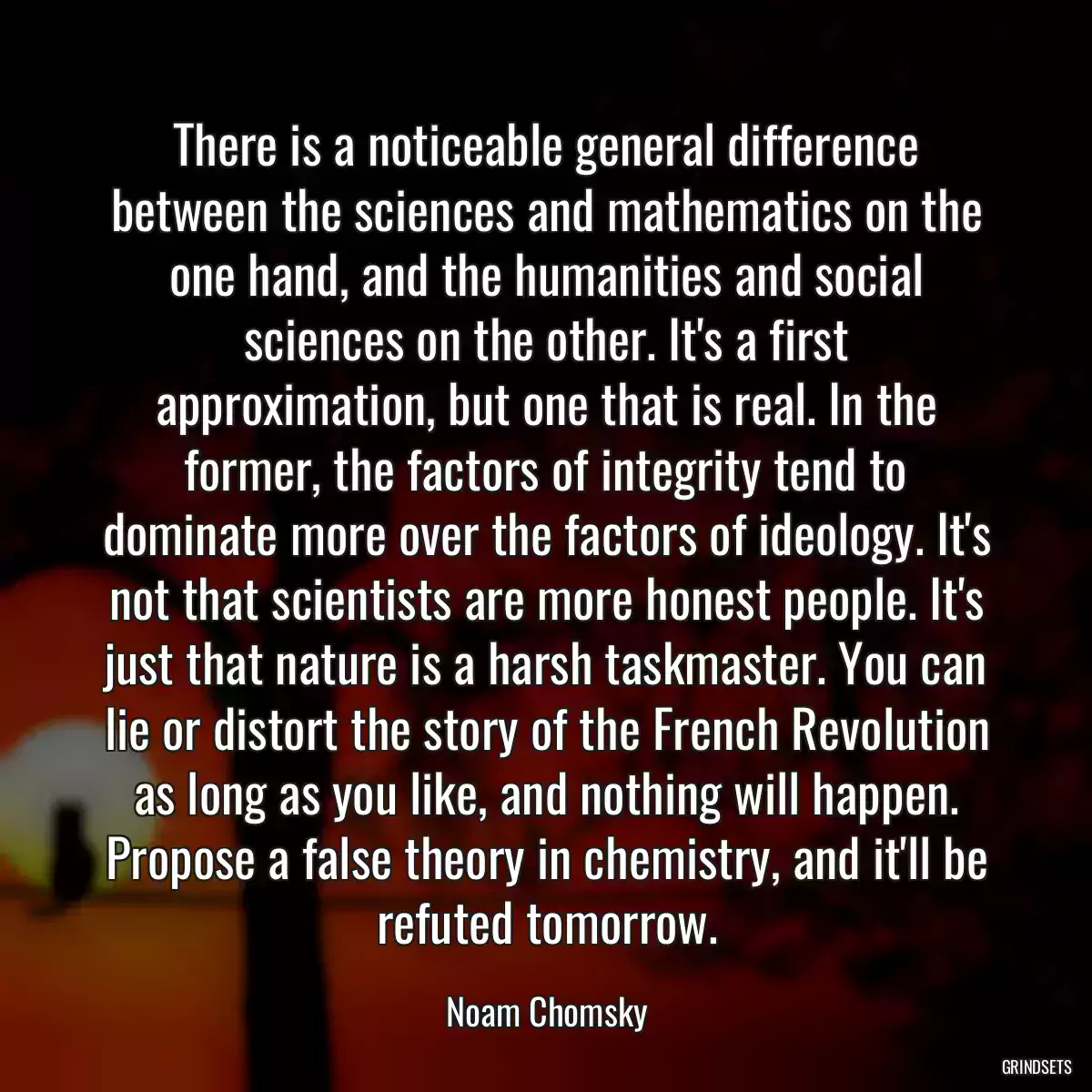
There is a noticeable general difference between the sciences and mathematics on the one hand, and the humanities and social sciences on the other. It's a first approximation, but one that is real. In the former, the factors of integrity tend to dominate more over the factors of ideology. It's not that scientists are more honest people. It's just that nature is a harsh taskmaster. You can lie or distort the story of the French Revolution as long as you like, and nothing will happen. Propose a false theory in chemistry, and it'll be refuted tomorrow.